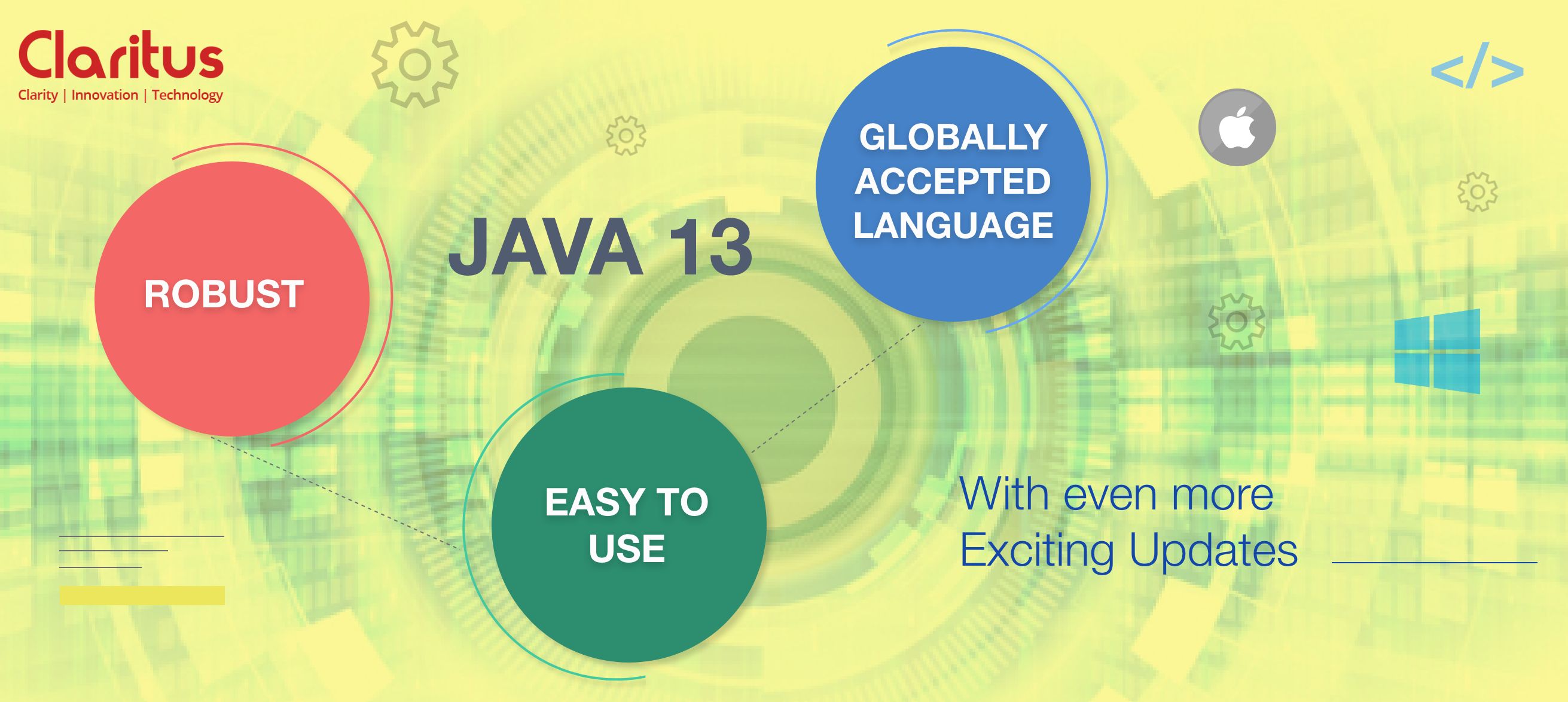Java 13 Release Update, Features and Java Development
Java application development is one of the most popular and widely used languages which require development tools like JDK. This JDK includes Java Runtime Environment, Java compiler and the Java APIs.
Java Web Development is comparatively easy for both new as well as experienced users to get started with.
On 17th September 2019, Oracle preponed the release of a major update into a featured update. JDK 13 was released globally.
The latest release includes the following features:
JEP-350: Dynamic CDS Archives: To enable dynamic archiving of classes at the end of a Java Application Execution, application class-data sharing is now allowed. The classes being archived shall consist of preloaded application and library classes which are presently not covered in the default base-layer CDS archive.
JEP-351: ZGC: Uncommit Unused Memory: This actually means to enhance the ZGC to return unused heap memory back to the Operating System.
Currently, ZGC does not uncommit and return memory to the operating system irrespective of the last time use. This is not optimum for all types of applications and or environments where memory usage is a major concern.
JEP-353: Reimplement the Legacy Socket API: Presently the implementation used by the java.net.Socket and java.net.ServerSocket APIs are currently not easy to debug and maintain im user-thread mode.
Replacing the underlying implementation with a simpler and more efficient with one that is easy to work in user-thread mode shall help Java Developers to simplify their work.
JEP-354: Switch Expressions (Preview): The switch expression shall be extended so that it may used as either a statement or an expression. Also, both forms can now use either a traditional case . . . : labels (with fall through) or a new case . . . -> labels (with no fall through), along with a new statement for generating a value from a switch expression.
The main reason for these changes is to simplify everyday development and make it more efficient.
JEP-355: Text Blocks (Preview): Finally, Oracle has decided to add text blocks to the Java Language. A text block in Java is a multi-line string expression which minimizes the redundant code for escape sequences, automatically formats the string in a predictable way and gives the developer control over format as and when required.

